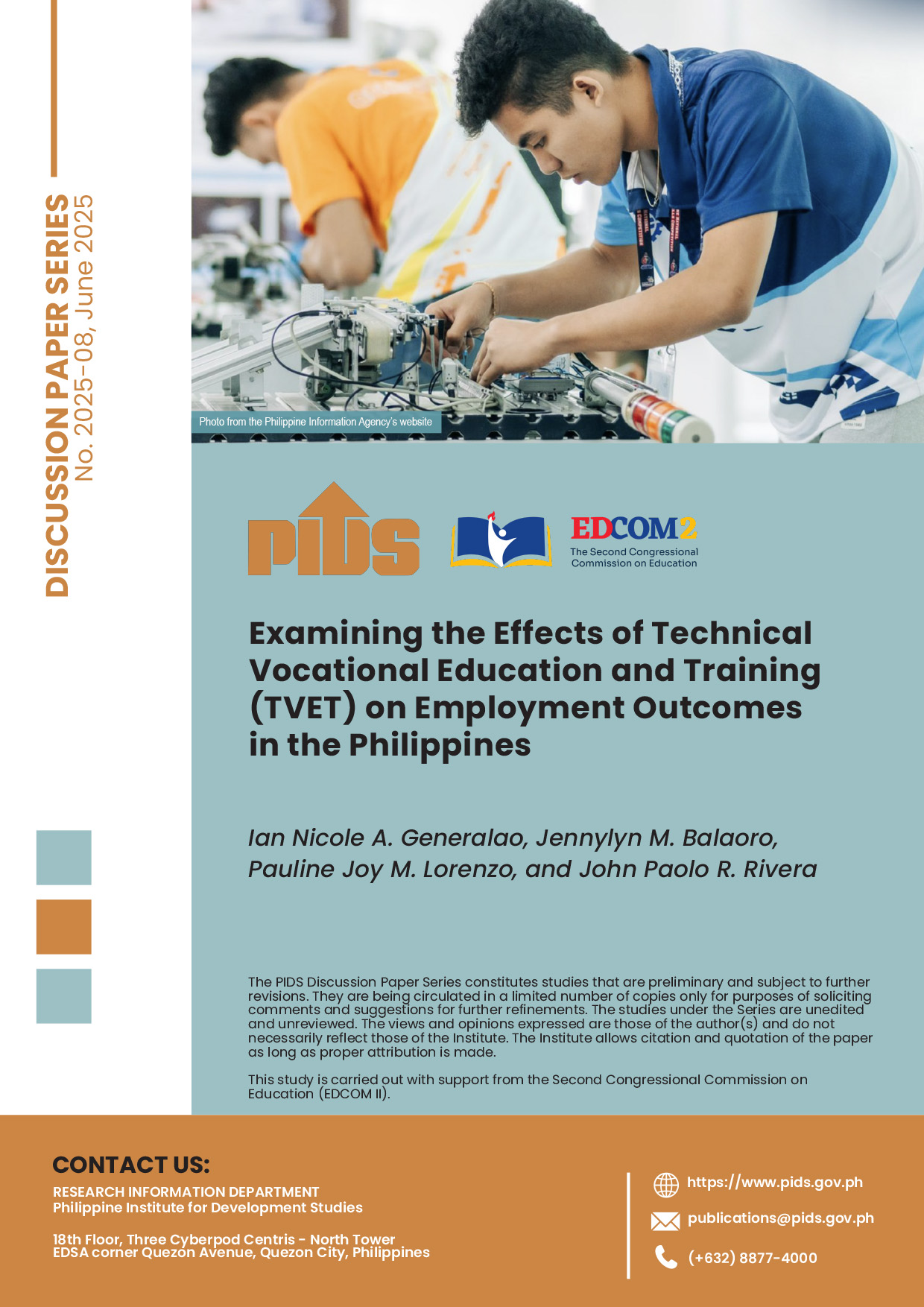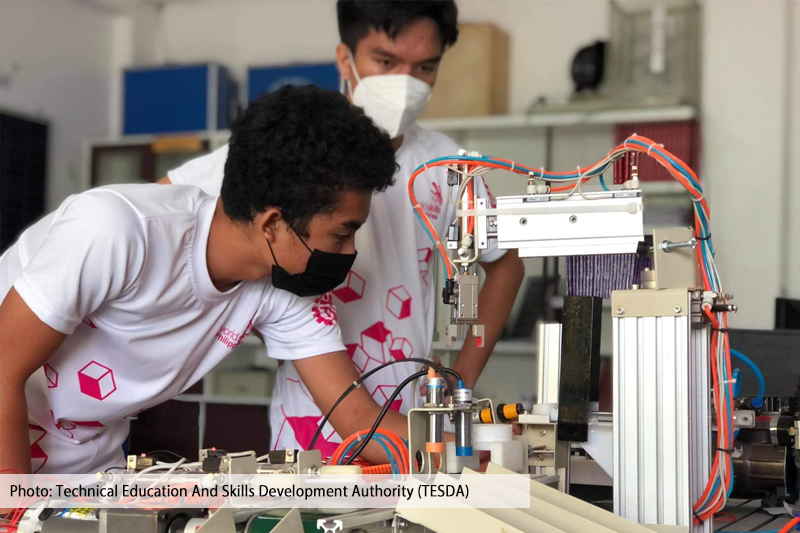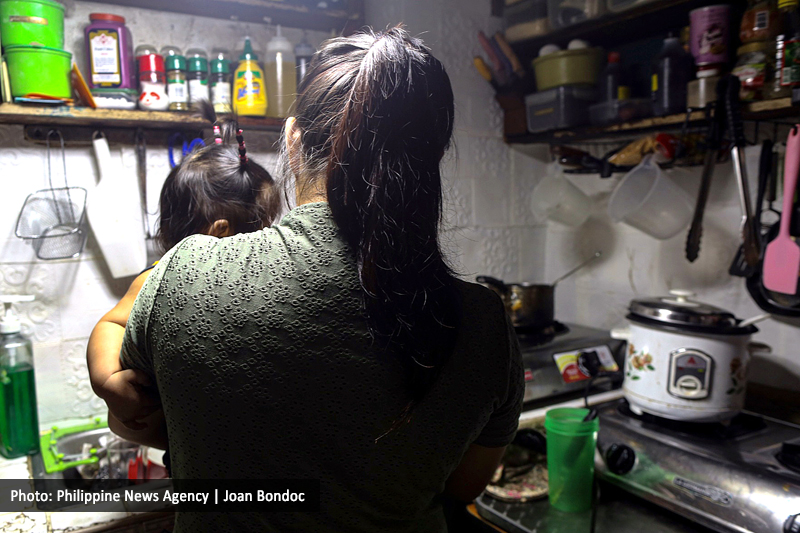Labor rigidities are binding constraints to growth. By labor rigidities, I mean the high minimum wages and the inflexible rules in the Labor Code guaranteeing security of tenure to workers after a mere six months.
These are big binding constraints to growth, meaning if unaddressed, fetter the growth of labor-intensive industries that can make a significant dent on poverty and unemployment.
Yes, it’s true that foreign ownership restrictions in the Constitution are also a big binding constraint to growth. However, liberalizing these restrictions will only promote competition and foreign investments in capital-intensive strategic sectors like telecoms, shipping, and ports. It will reduce costs of strategic inputs to industry but not do much in promoting large investments in labor-intensive industries.
Labor market reform should be front and center in conversations about economic reform for inclusive growth.
I’m not the only one talking about the critical need for labor market reform. In fact, much earlier (and I owe an intellectual debt to them), in their individual capacities, Dr. Gerardo Sicat, Dr. John Nye, and Dr. Vicente Paqueo have been pointing out that labor rigidities are constraining industrialization and employment, and are in fact, anti-poor.
Dr. Gerry Sicat is the country’s first Socioeconomic Planning secretary and founding NEDA director general. For many years, he has been saying that the minimum wage should be an entry-level wage and not be set so high, which it is, that it discourages the hiring of new and untrained workers in the formal sector. He has batted for special economic zones where the restrictive Labor Code can be relaxed to promote investments.
Dr. John Nye is the Frederic Bastiat Professor of Political Economy in George Mason University. He was the valedictorian in former President Aquino’s Ateneo high school class. Check out his YouTube lecture zeroing in on labor rigidities as a core constraint preventing the country from industrializing: http://bit.ly/2b9tQx5
Dr. Vicente Paqueo is a retired World Bank economist whose expertise is in economics and human development. He led a team composed of economists from the Philippine Institute of Development Studies, the government’s economic think tank, which wrote the paper, Labor Policy Analysis of Job Expansion and Development (available in the PIDS Web site) in 2014. It’s a courageous paper because it goes against the prevailing political orthodoxy that ever escalating minimum wages are good. In fact, Paqueo et al. concluded that the legal minimum wage is anti-poor and worse, anti-youth, anti-uneducated, and anti-women and reduces economic welfare where it is applied.
Comes now the World Bank, which recently published its Republic of the Philippines Labor Market Review, and confirms essentially what these eminent economists have been saying. The report can be downloaded from the WB Web site. On the state of jobs and employment in the Philippines, it says:
Economic growth did not bring about wage growth.
Employment structure remains traditional, and the modern sector of the economy is still relatively small.
Informality looms large.
Many jobs require little skills, and laborers are the largest occupational group.
The problem of low educational attainment is particularly pronounced among youth from poor families, most of whom live in rural areas.
A large fraction of the youth is idle.
Incidence of low-pay is particularly high in the informal sector
Incidence of low-pay is significantly higher among women than men.
People are poor in the Philippines because they earn little, not because they do not work.
From the perspective of poverty, underemployment is a bigger problem than unemployment.
Workers covered by the minimum wage policy represent a minority among the working poor.
Workers who benefit from minimum wage are not necessarily poor.
Labor regulations in the Philippines, on paper, provide workers considerable degree of protection but in reality, benefit only a small group of workers.
Labor wages are high relative to worker productivity.
Informality limits the actual coverage of the minimum wage policy.
While informality confines the effective coverage of labor regulations, strict labor regulations contribute to informality.
Strict employment protection legislation leads employers to increasingly use temporary employment contracts.
High minimum wage may exclude low-productivity workers from formal employment.
Making regular employment contracts more flexible could reduce segmentation.
Aligning minimum wage with worker productivity can improve the chances of less-skilled workers being hired formally.
It would be well, therefore, for President Rodrigo Duterte to be cautious about ending “endo” as the centerpiece of his labor market reform. Companies resorting to “endo” or terminating employees before their six-month contracts are up is a symptom of the overly strict and unrealistic protection provisions in the Labor Code. Killing employers for resorting to “endo” is not going to solve the problem and will only drive more companies underground.
Even President Duterte admitted that government cannot police and ensure compliance to the law. Unleashing labor inspectors on erring companies is not only unrealistic but will also breed more corruption.
Curing the disease rather than the symptom requires a twin solution. One is liberalize the permanency provisions in the Labor Code and to relax administrative procedures for termination but protect workers with termination pay. The other is to encourage more low-productivity workers into the formal sector by aligning minimum wage with productivity.
To those politicians acting like ostriches and sticking their heads in the sand, I say: Stop. Labor market reform is central for inclusive growth.
There’s no going around this: if we want to industrialize, if we want the economy to generate jobs and alleviate poverty, if we want inclusive growth, if we want the social justice that President Duterte wants for the Filipino people, the most urgent, the most important, the most consequential reform is minimum wage and labor security reform. Not tax policy reform, not power sector reform, not reorganization of the Bureau of Customs, but minimum wage and labor security reform.
Calixto V. Chikiamco is a board director of the Institute for Development and Econometric Analysis.
idea.introspectiv@gmail.com
www.idea.org.ph
These are big binding constraints to growth, meaning if unaddressed, fetter the growth of labor-intensive industries that can make a significant dent on poverty and unemployment.
Yes, it’s true that foreign ownership restrictions in the Constitution are also a big binding constraint to growth. However, liberalizing these restrictions will only promote competition and foreign investments in capital-intensive strategic sectors like telecoms, shipping, and ports. It will reduce costs of strategic inputs to industry but not do much in promoting large investments in labor-intensive industries.
Labor market reform should be front and center in conversations about economic reform for inclusive growth.
I’m not the only one talking about the critical need for labor market reform. In fact, much earlier (and I owe an intellectual debt to them), in their individual capacities, Dr. Gerardo Sicat, Dr. John Nye, and Dr. Vicente Paqueo have been pointing out that labor rigidities are constraining industrialization and employment, and are in fact, anti-poor.
Dr. Gerry Sicat is the country’s first Socioeconomic Planning secretary and founding NEDA director general. For many years, he has been saying that the minimum wage should be an entry-level wage and not be set so high, which it is, that it discourages the hiring of new and untrained workers in the formal sector. He has batted for special economic zones where the restrictive Labor Code can be relaxed to promote investments.
Dr. John Nye is the Frederic Bastiat Professor of Political Economy in George Mason University. He was the valedictorian in former President Aquino’s Ateneo high school class. Check out his YouTube lecture zeroing in on labor rigidities as a core constraint preventing the country from industrializing: http://bit.ly/2b9tQx5
Dr. Vicente Paqueo is a retired World Bank economist whose expertise is in economics and human development. He led a team composed of economists from the Philippine Institute of Development Studies, the government’s economic think tank, which wrote the paper, Labor Policy Analysis of Job Expansion and Development (available in the PIDS Web site) in 2014. It’s a courageous paper because it goes against the prevailing political orthodoxy that ever escalating minimum wages are good. In fact, Paqueo et al. concluded that the legal minimum wage is anti-poor and worse, anti-youth, anti-uneducated, and anti-women and reduces economic welfare where it is applied.
Comes now the World Bank, which recently published its Republic of the Philippines Labor Market Review, and confirms essentially what these eminent economists have been saying. The report can be downloaded from the WB Web site. On the state of jobs and employment in the Philippines, it says:
Economic growth did not bring about wage growth.
Employment structure remains traditional, and the modern sector of the economy is still relatively small.
Informality looms large.
Many jobs require little skills, and laborers are the largest occupational group.
The problem of low educational attainment is particularly pronounced among youth from poor families, most of whom live in rural areas.
A large fraction of the youth is idle.
Incidence of low-pay is particularly high in the informal sector
Incidence of low-pay is significantly higher among women than men.
People are poor in the Philippines because they earn little, not because they do not work.
From the perspective of poverty, underemployment is a bigger problem than unemployment.
Workers covered by the minimum wage policy represent a minority among the working poor.
Workers who benefit from minimum wage are not necessarily poor.
Labor regulations in the Philippines, on paper, provide workers considerable degree of protection but in reality, benefit only a small group of workers.
Labor wages are high relative to worker productivity.
Informality limits the actual coverage of the minimum wage policy.
While informality confines the effective coverage of labor regulations, strict labor regulations contribute to informality.
Strict employment protection legislation leads employers to increasingly use temporary employment contracts.
High minimum wage may exclude low-productivity workers from formal employment.
Making regular employment contracts more flexible could reduce segmentation.
Aligning minimum wage with worker productivity can improve the chances of less-skilled workers being hired formally.
It would be well, therefore, for President Rodrigo Duterte to be cautious about ending “endo” as the centerpiece of his labor market reform. Companies resorting to “endo” or terminating employees before their six-month contracts are up is a symptom of the overly strict and unrealistic protection provisions in the Labor Code. Killing employers for resorting to “endo” is not going to solve the problem and will only drive more companies underground.
Even President Duterte admitted that government cannot police and ensure compliance to the law. Unleashing labor inspectors on erring companies is not only unrealistic but will also breed more corruption.
Curing the disease rather than the symptom requires a twin solution. One is liberalize the permanency provisions in the Labor Code and to relax administrative procedures for termination but protect workers with termination pay. The other is to encourage more low-productivity workers into the formal sector by aligning minimum wage with productivity.
To those politicians acting like ostriches and sticking their heads in the sand, I say: Stop. Labor market reform is central for inclusive growth.
There’s no going around this: if we want to industrialize, if we want the economy to generate jobs and alleviate poverty, if we want inclusive growth, if we want the social justice that President Duterte wants for the Filipino people, the most urgent, the most important, the most consequential reform is minimum wage and labor security reform. Not tax policy reform, not power sector reform, not reorganization of the Bureau of Customs, but minimum wage and labor security reform.
Calixto V. Chikiamco is a board director of the Institute for Development and Econometric Analysis.
idea.introspectiv@gmail.com
www.idea.org.ph











